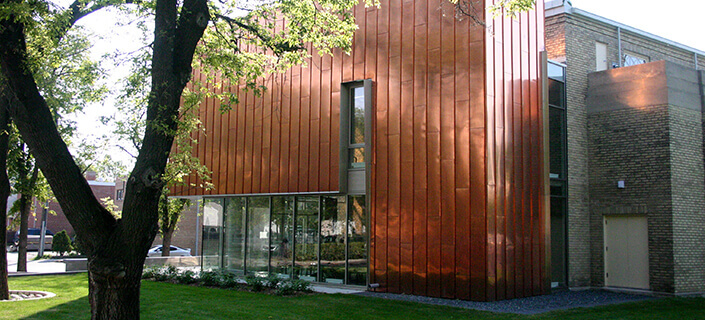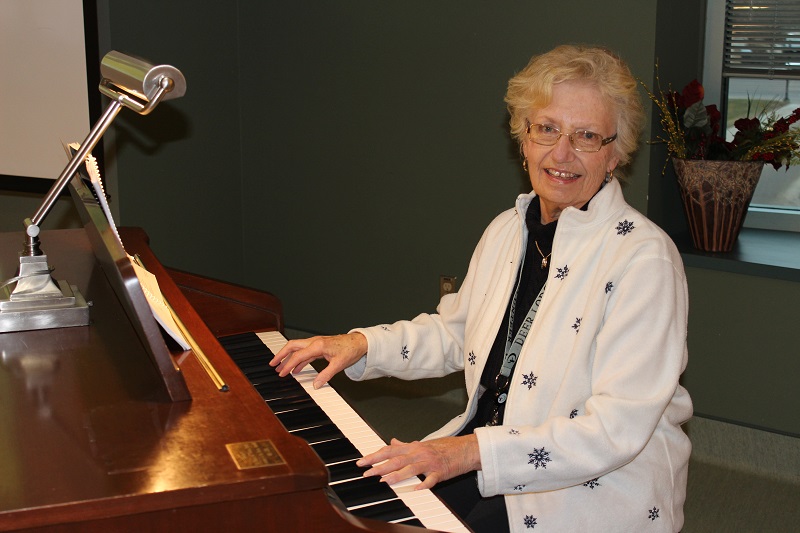
Happiness and hope guide Deer Lodge Centre’s Alzheimer’s care
By Teri Stevens
Studies suggest that “living in the moment” makes people happier. For those with Alzheimer’s disease, living in the moment isn’t optional, so part of the care that Deer Lodge Centre provides for those living with dementia is to make every moment as good as it can be.
Even in 2017, Alzheimer’s is still a mysterious disease. The most common type of dementia, Alzheimer’s impacts the structure of the brain in a way that causes brain cells to shrink or disappear. A per-son living with the disease experiences symptoms that progress over time, such as memory loss, difficulty performing daily tasks, and changes in judgement, behaviour and emotions.
Alzheimer’s tends to develop later in life. While the progression of the disease is generally understood, experts still don’t know what causes it or how to stop it. They do know it’s distinct from normal aging. According to the Alzheimer Society of Manitoba, approximately 40% of people over the age of 65 experience some form of memory loss. Most of those people don’t go on to develop Alzheimer’s or other forms of dementia.
By the time folks with dementia are admitted to Deer Lodge, they are generally experiencing moderate to severe symptoms. They may not recognize family members or know where they are. Regardless of their diagnosis, staff approach each person the same way: with individualized care that starts with a thorough assessment. The staff get to know the person, including their likes, dislikes and routines before the disease progressed. The staff develop an individualized care plan for each resident, build-ing in enough flexibility for it change from day to day, if need be. “It sounds really simple,” says clinical resource nurse Arlis Decorte, “but individualized, flexible care is no small thing.”
The unfortunate reality of Alzheimer’s and other forms of dementia is that they’re terminal illnesses. People don’t come to Deer Lodge to be cured. The organization’s goal is to make people comfortable, and, as Arlis says, “maximize quality of life within the reality of the disease.” Nurses work side by side with recreation staff to offer program-ming based on what residents used to enjoy doing, whether that’s bingo, interest groups such as “About the News,” art class, exercise, or being read to. One of the most popular activities is “Reminiscence”, where residents get together and talk about the “old days.” Long-term memories last the longest for people with dementia; reminiscing brings people out of their shells and gets their mind off the fact that their short-term memory is impaired.
When it comes to providing care to a loved one with dementia, Maureen Chouinard, manager of resident care at Deer Lodge, says “keeping them in the same routine and being there and supporting them is the best advice we can give.” Another key bit of advice she offers is to live with them in the moment. “When our residents are talking about something that happened maybe 20 or 30 years ago to them, they believe that’s happening now, and we live that moment with them. If we tried to bring them back to where they are today, it’s traumatic for them. They don’t understand that at all.” Within the walls of Deer Lodge, that philosophy leads to some creativity on the part of the staff. “If they say they need to catch the train and they need a train pass and some money, we’ve given them phoney money and train passes. We’ve come up with it, because it makes them happy.”
Adds Arlis, “When you know that they’re not going to retain what you said in an hour, why give them any message, except the message of happiness and hope.”
Find out more about Alzheimer’s and other forms of dementia at www.alzheimer.mb.ca
NORMAL AGING | DEMENTIA |
| Not being able to remember small details of a conversation or event that took place a year ago | Not being able to recall details of recent events or conversations |
| Not being able to remember the name of an acquaintance | Not recognizing or knowing the names of family members |
| Forgetting things and events occasionally | Forgetting things or events more frequently |
| Occasionally have difficulty finding words | Frequent pauses and substitutions when finding words |
| You are worried about your memory but your relatives are not | Your relatives are worried about your memory, but you are not aware of any problems |
Note: This is not a diagnostic tool. If you have any concerns about your memory, talk to your family doctor. Source: www.alzheimer.mb.ca
Recent News

Embracing Hope: The Impact of DLC’s Movement Disorder Clinic

Winnipeg Jets Parkinson’s Disease Awareness Game!

